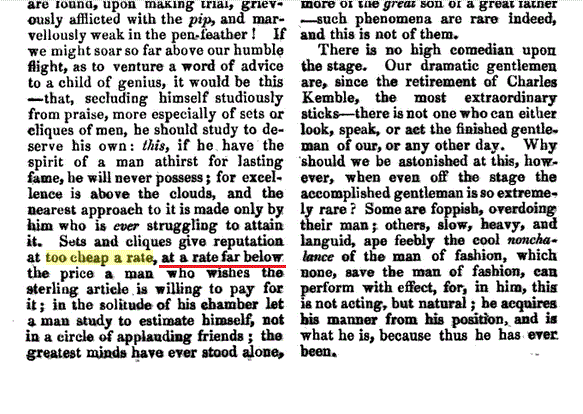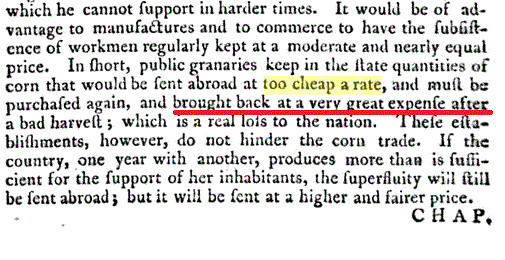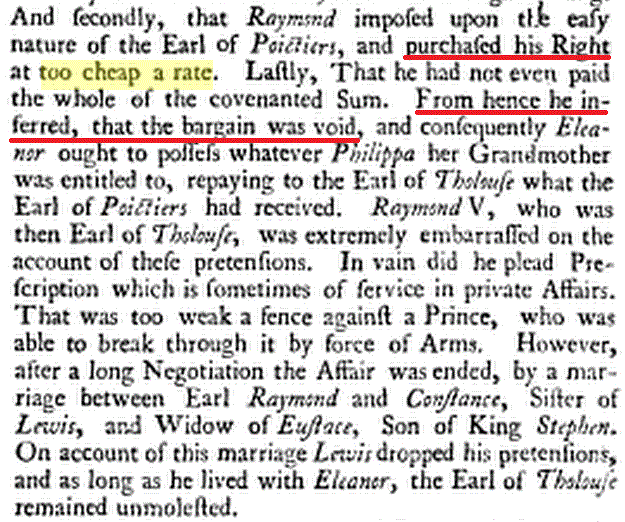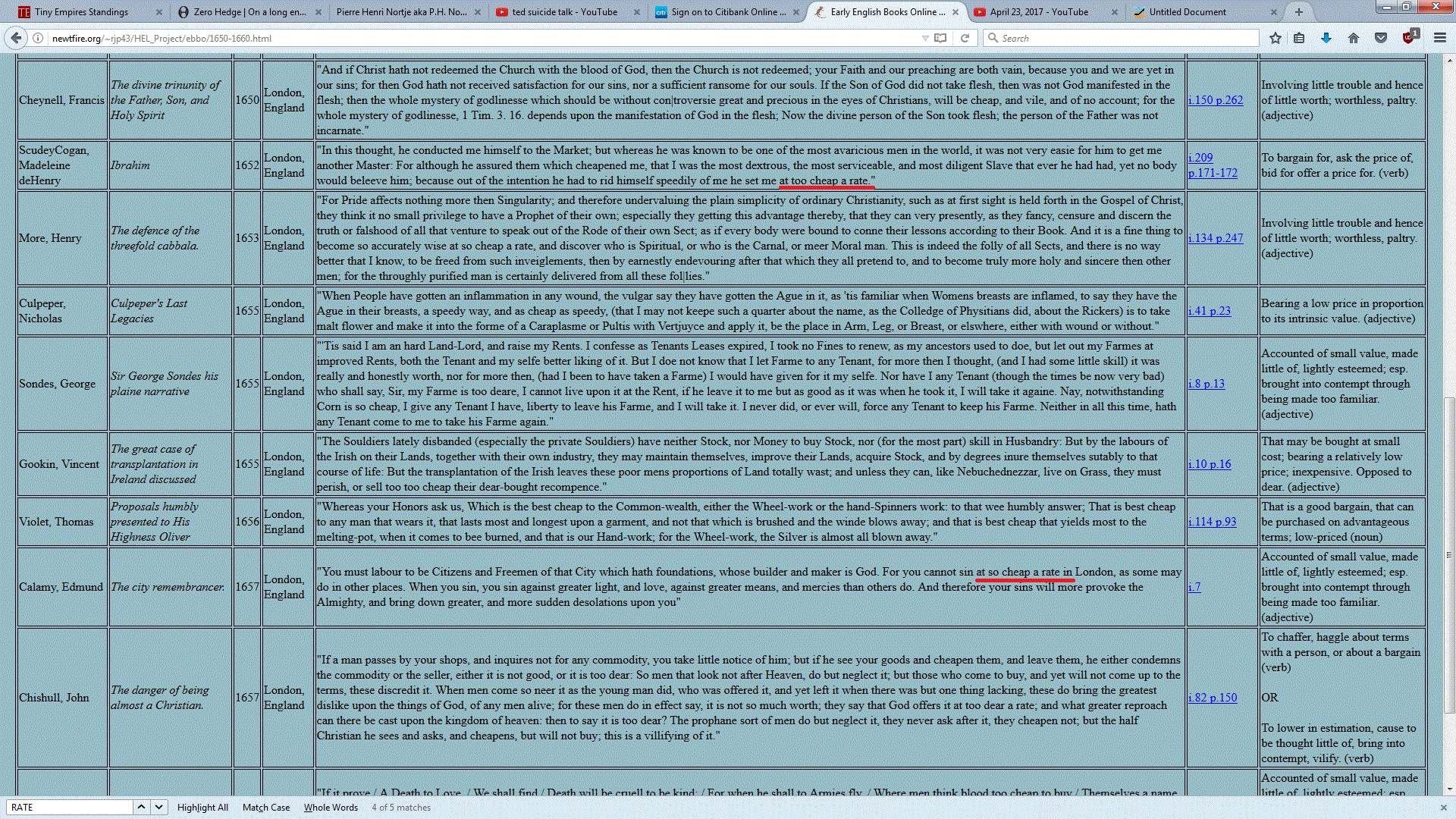
The suggestion has been made by those suggesting the Griquatown tokens circulated and that the reason they failed was confusion over their value resulting from Helm's reference to them being disposed at "too cheap a rate" is destroyed by simply Googling that reference (too cheap a rate) in search. The links below are all in context with Helm's writing at that time (the 1800s) and are largely made by men deeply involved in the same religious faith as Helm at that time. In other words the context of the term is relevant to that time.
We have to look at the term in context to the 1800s and the cut and pastes below with sourced links reflect one fact. There is NO confusion over the value - just that the transaction was not of its true value at the time it happened (ie undervalued). In Balson's view the term used by Helm "too cheap a rate" is a polite way of Helm saying that a few of the Griquatown tokens of little individual value were disposed of by Anderson without any value associated to this transfer of the token. In other words he gave a few away to the Griqua leaders who had no use for the coins that became little more than trinkets.
This fact is supported by the simple fact that at no time time was a single Griquatown token noted as an asset in the books of the London Missionary Society in Griquatown while elephant tusks, goats and Rijksdaalder were. Why were the Griquatown tokens not listed as assets if even one was circulated as money? After all their origin was the London Missionary Society. If they had they would have had to be listed in their asset register.
To suggest even one circulated as money is complete rubbish.
Here are just some of many references to "too cheap a rate" that you can Google for yourself:




